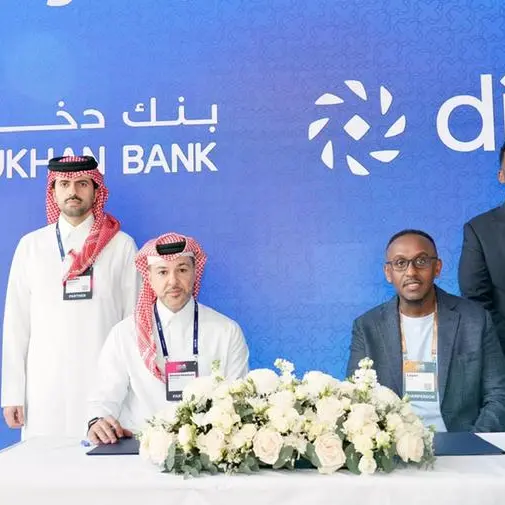PHOTO
Dubai, United Arab Emirates – The Economist Intelligence Unit (EIU) has recently released the results of an in-depth study of how the relationship between technology, business and people evolved during the COVID-19 pandemic. The EIU heard from business leaders across eight distinct industries about the challenges and opportunities the disruption created for organizations and how digital initiatives shifted to confront a new reality.
“Every company is a digital company in the post pandemic era and the past year has fundamentally changed the way businesses must evolve in the new normal,”said Ihsan Anabtawi, Chief Operating and Marketing Officer, Microsoft UAE. “ The research with EIU unveils an in-depth analysis on how the relationships between technology, businesses and individuals have evolved. This means we will have to invest in people and their capacity in creating new solutions that meet the challenges of a rapidly changing economy.”
Overwhelmingly, business leaders cited digital preparedness as key to their ability to adapt. The mass move to remote work also led to a heightened focus on employee engagement — so much so that empowerment topics like skill-building, well-being and creating lasting benefits for society at large now lead the transformation agenda for many organizations.
“We’ve long seen the advantages that digital transformation brings customers — and this data gives us concrete insights into how industries have handled the challenges of the past year,” said Deb Cupp, Microsoft’s corporate vice president for enterprise and commercial industries. “The findings confirm trends we’ve seen emerging and reinforce our commitment to delivering insights, products and services that help customers in every industry pivot when they need to, empower workers of all kinds and achieve more.”
Commissioned by Microsoft, the EIU research seeks to unlock insights from the past year and focus on the way forward. The study looked specifically at supply chains, remote work, predictive analytics, decision-making, and employee safety and well-being.
“The COVID-19 pandemic showed how digital tools are critical in allowing businesses to create agility and respond to major disruption,” said Michael Gold, managing editor, The Economist Intelligence Unit. “But this study shows that it’s not just about business. Companies overwhelmingly see digital transformation as crucial in overcoming skills gaps, engaging employees, and delivering broader benefits to society.”
Focus on employees and societal impacts expressed across the board
The study showed a renewed focus across industries toward engaging and connecting people to each other, to their work and to a shared sense of purpose. The percentage of all respondents citing employee engagement as a technology imperative shot up from 24% pre-pandemic to 36% in the COVID era, and was up by 10 or more percentage points in manufacturing, financial services, retail, and education.
Technology investments accelerating worldwide
Prepared or not, organizations across industries accelerated their transformation initiatives and began to rely more heavily on digital tools. Here cloud technology led the way, with 50% of organizations saying it played a critical role in their COVID-era operations. That was followed by technologies to enable remote work (40%), artificial intelligence and machine learning (33%), and the Internet of Things (31%).
Pandemic’s impact on industries shows human side of digital priorities
Because each industry operates differently, the pandemic exposed digital gaps in different ways. Educators expressed concerns about access and inclusion, while automakers focused on climate change. Across all industries, the human side of technology transcended their responses and, in some ways, overshadowed benefits to business. Study highlights by industry include the following:
- Automotive respondents were far more likely to cite climate change as a primary benefit of digital transformation. The industry also is investing in automation, process efficiency and enhancing digital skills among the workforce.
- Education respondents cite skill-building and inclusivity as top benefits of digital transformation in their industry, but they’re concerned about a lack of tools creating a barrier to digital progress, as well as the fragmented application of technology across departments.
- Financial services organizations were the most prepared digitally to meet the challenges of regional lockdowns and supply-chain disruptions. Financial services respondents were the most likely to agree that the pandemic highlighted the competitive edge of digitally prepared companies.
- Government organizations had an easier time obtaining budget to invest in technologies once the pandemic hit and generally prioritized tools to facilitate remote work and collaboration. However, skills and talent gaps remain barriers to digital transformation.
- Healthcare organizations relying heavily on in-person interaction may have had the most transformation to do when the pandemic hit, regarding remote employee and patient experiences. While maintaining strict compliance with patient privacy regulations, administrators and clinicians rapidly expanded and adopted virtual capabilities as the pressure of COVID forced increased investments.
- Manufacturing, pre-pandemic, was already working to address a skills gap. The sector also cited diversity and inclusion, skill-building, and climate change among their top concerns that digital transformation can help address.
- Media and communications respondents expressed concerns about keeping up with the pace of technological change and shared their belief that combatting disinformation will be the key benefit of digital transformation in the industry.
- The retail and consumer goods industry expressed optimism that digital transformation would enhance job prospects and was the industry most likely to focus on the positive societal impacts of the shift to distributed and remote working.
The complete report can be accessed here.
-Ends-
About Microsoft
Microsoft (Nasdaq “MSFT” @microsoft) enables digital transformation for the era of an intelligent cloud and an intelligent edge. Its mission is to empower every person and every organization on the planet to achieve more. Microsoft opened its Dubai-based headquarters in 1991, which, today, oversees operations across the region.
For more information (Press only):
Magdalena Stepien, Microsoft UAE
E : mastepie@microsoft.com
M: +971 56 114 2948
Husain Gandhi, ProGlobal Media
E: h.gandhi@proglobal.ae
T: +971 56 534 8764
© Press Release 2021
Disclaimer: The contents of this press release was provided from an external third party provider. This website is not responsible for, and does not control, such external content. This content is provided on an “as is” and “as available” basis and has not been edited in any way. Neither this website nor our affiliates guarantee the accuracy of or endorse the views or opinions expressed in this press release.
The press release is provided for informational purposes only. The content does not provide tax, legal or investment advice or opinion regarding the suitability, value or profitability of any particular security, portfolio or investment strategy. Neither this website nor our affiliates shall be liable for any errors or inaccuracies in the content, or for any actions taken by you in reliance thereon. You expressly agree that your use of the information within this article is at your sole risk.
To the fullest extent permitted by applicable law, this website, its parent company, its subsidiaries, its affiliates and the respective shareholders, directors, officers, employees, agents, advertisers, content providers and licensors will not be liable (jointly or severally) to you for any direct, indirect, consequential, special, incidental, punitive or exemplary damages, including without limitation, lost profits, lost savings and lost revenues, whether in negligence, tort, contract or any other theory of liability, even if the parties have been advised of the possibility or could have foreseen any such damages.




















